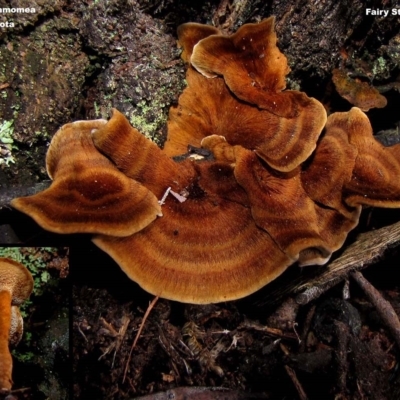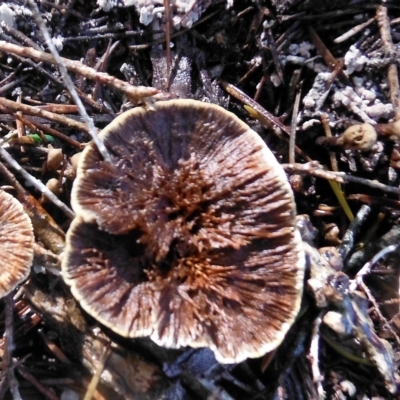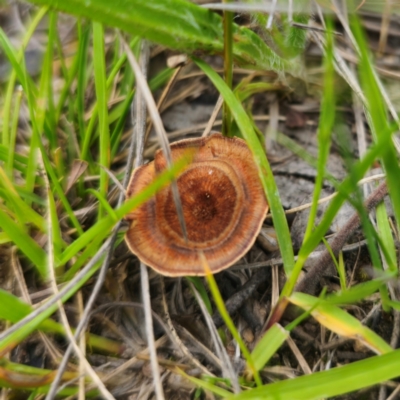Polypore - Non-fleshy texture, stem central or lateral species
Moderators
The following moderators provide knowledge and expertise for Polypores - Non-fleshy texture, stems central or lateral :
Heino1 | Csteele4 | KenT | Pam | CanberraFungiGroup
Overview
Some species in this sub-group produce fruitbodies with caps that are thin and leathery, but pliable, whereas other species produce fruitbodies with thick, corky and unpliable caps.
In the following hints you see examples of useful identification features and a few of the more commonly seen genera in which at least some species (not necessarily all) show those features.
Hints
On wood; pores radially elongated: Polyporus.
On wood; whitish cap to a centimetre or so in diameter: Panellus.
On soil; thin, brown, concentrically banded cap: Coltricia.
On soil; thick cap, brown on upper side & with white pores that bruise red: Amauroderma.
Warning
If you think you have a small-pored member of this sub-group, it pays to check with a magnifying glass or hand lens. Some species of the Caps on stems; teeth below caps group produce leathery fruitbodies in which the teeth are so densely packed that, at first glance, you might think the underside has small pores.
8 species
Conservation level
- All conservation levels (change?)
Invasiveness
- All invasiveness levels (change?)
Machine learning
Machine learning is not enabled.
Follow Polypores - Non-fleshy texture, stems central or lateral
Receive alerts of new sightings
SubscribeShare field guide
Share link to Polypores - Non-fleshy texture, stems central or lateral field guide



























